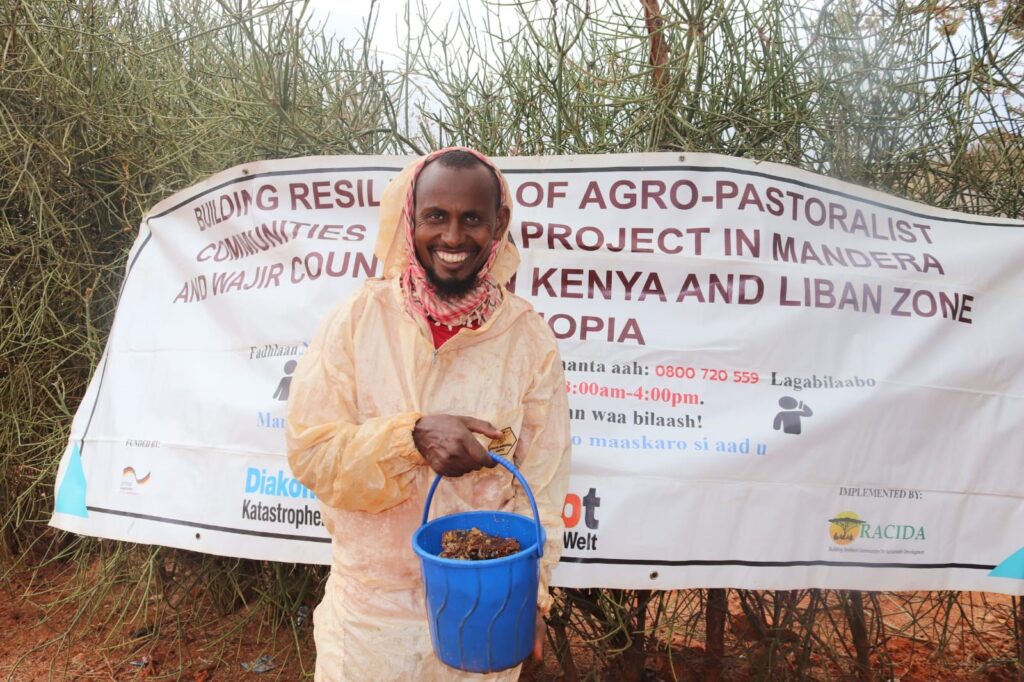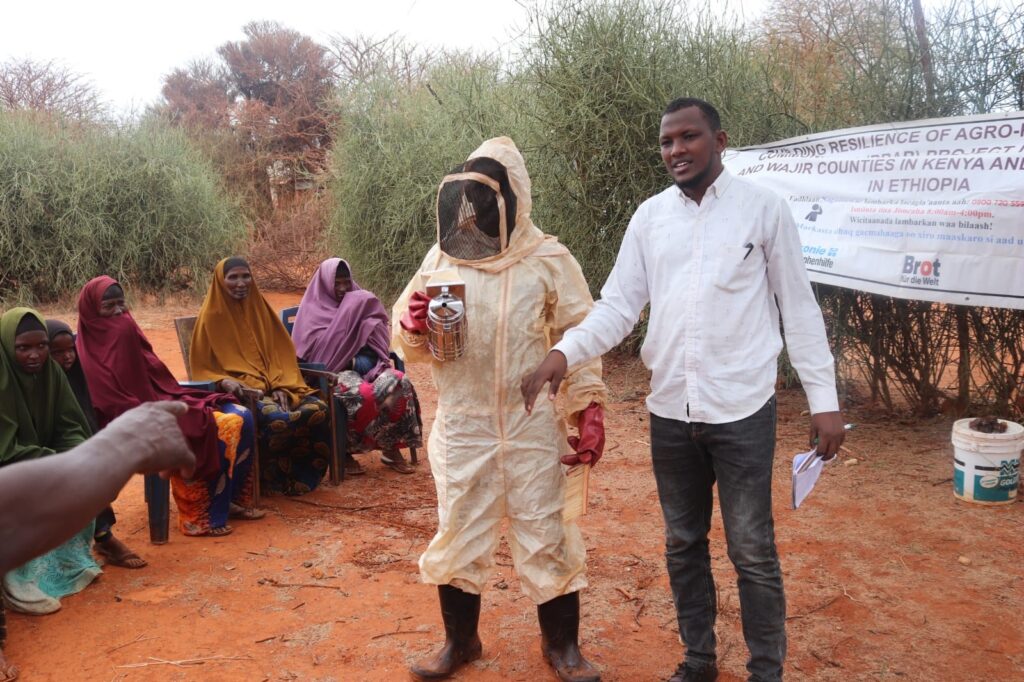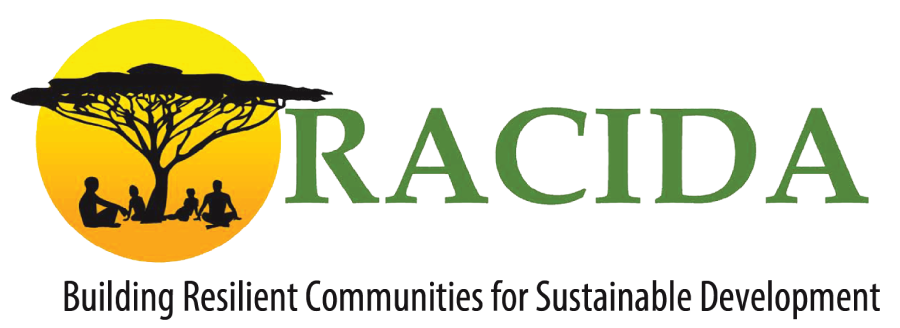
BY: Maryan Siyad & Ahmed Hussein
Yusuf Maalim Farah, a father of 14 children from Terbey, Banisa Sub-county in Mandera, has found new hope through an initiative introduced by RACIDA. With funding from Diakonie Katastrophenhilfe, the German Federal Ministry of Economic Cooperation and Development, and Brot für die Welt, RACIDA has launched a beekeeping project aimed at empowering local residents.
Yusuf is among 15 community members who have received comprehensive support, including training in bee farming, Langstroth beehives, and honey harvesting kits.
These kits, comprising extractors, suits, smokers, torches, gumboots, brushes, and packaging containers, have equipped him and others to embark on a journey they never imagined.
Before this intervention, Yusuf and his community had no experience or knowledge of beekeeping. The concept of managing bees, harvesting honey, and extracting it was entirely new to them.
However, with the training and resources provided by RACIDA, everything changed.
Yusuf expresses his gratitude, saying, “I have benefited from the bee farming, the training, and kits. Before the support and training, we had no knowledge of the activity, including beekeeping, harvesting, and extracting honey.”
“This initiative has supported us to uplift our livelihoods, for medicinal use, sale, and more benefits. We sell a 3-liter container at Ksh 3,000, which is a good price, “he added.
The introduction of beekeeping has significantly transformed Yusuf’s life and those of other community members. The honey produced serves as a source of nutrition, medicine, and a valuable commodity that can be sold to generate income.
This additional income is crucial for Yusuf, who has 14 children to support. The project has not only enhanced his family’s economic stability but also provided a sustainable and environmentally friendly way to do so.

Beyond economic benefits, the bee farming initiative in Terbey is a vital step towards building community resilience. By diversifying their livelihoods, beneficiaries like Yusuf are better prepared to handle the uncertainties and shocks brought by the region’s harsh climatic conditions.
RACIDA’s project, funded by Diakonie Katastrophenhilfe, the German Federal Ministry of Economic Cooperation and Development, and Brot für die Welt, highlights the power of community-driven development.
Through sustainable practices such as beekeeping, entire communities can be uplifted, equipped with the tools and knowledge they need to thrive. As Yusuf continues to expand his beekeeping practice, he envisions a future where his efforts yield even greater benefits for his family and community.
The training and resources provided have laid a solid foundation, but the true impact of this initiative will be seen in the long-term prosperity and resilience of the beneficiaries.
Stories like Yusuf’s demonstrate the profound impact of sustainable development initiatives. The beekeeping journey in Terbey is just beginning, but its potential to transform lives and communities is immense.
